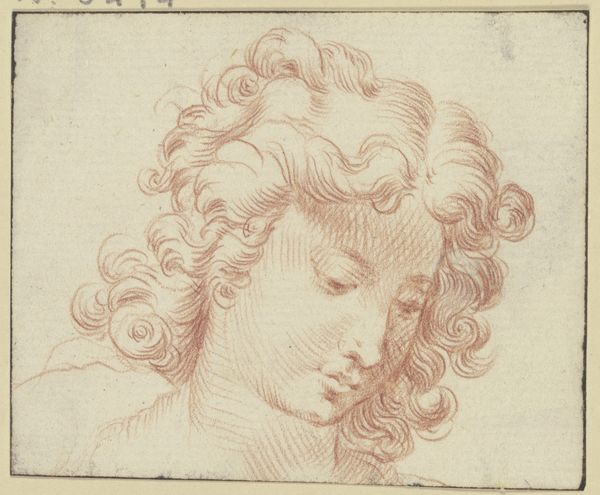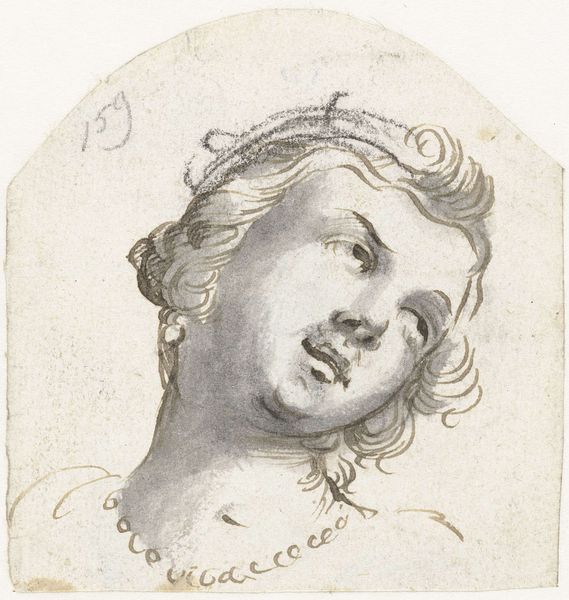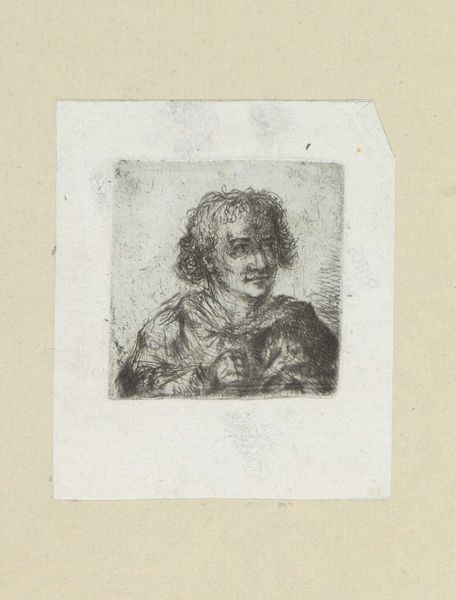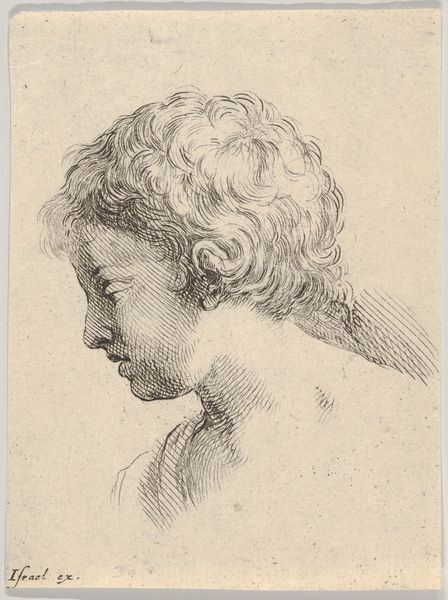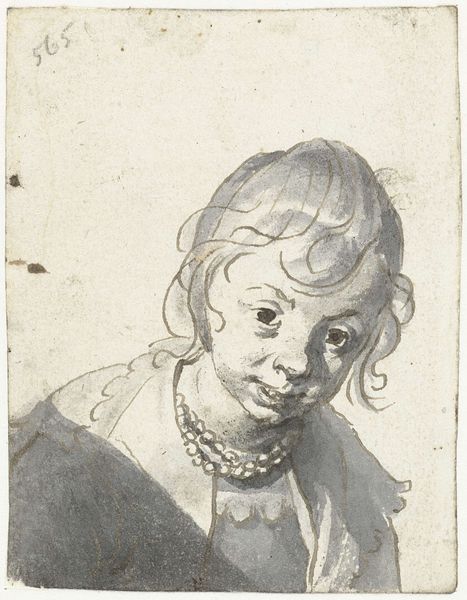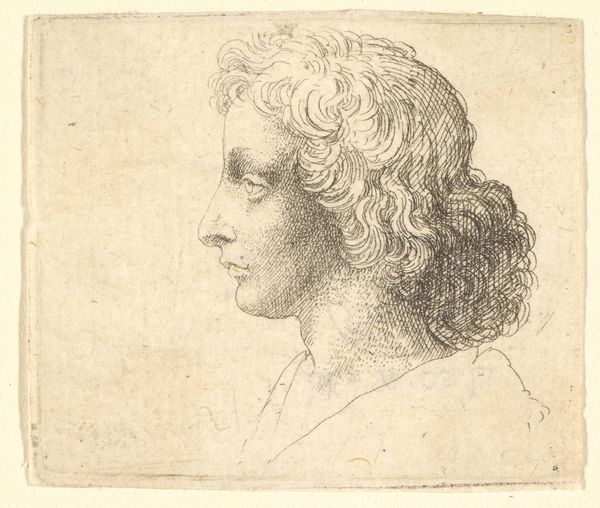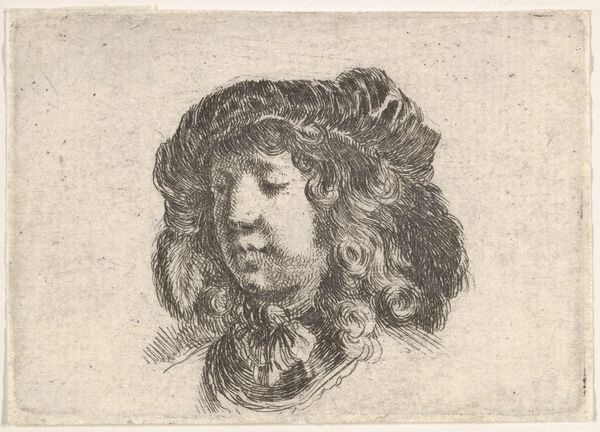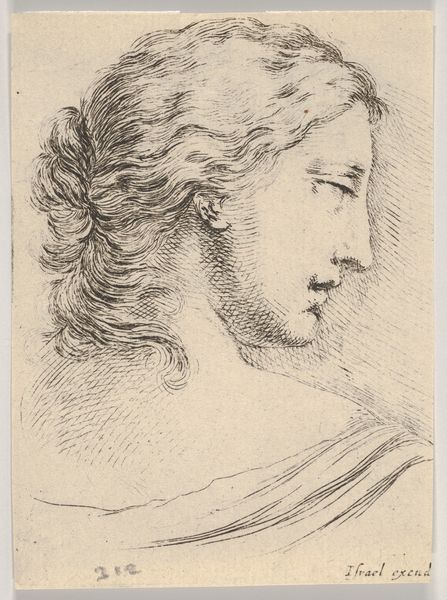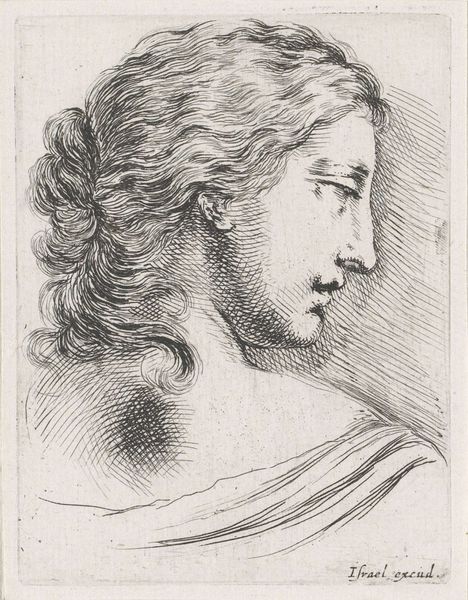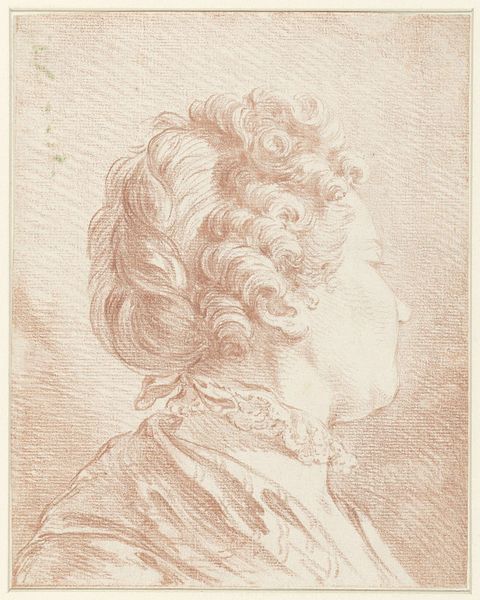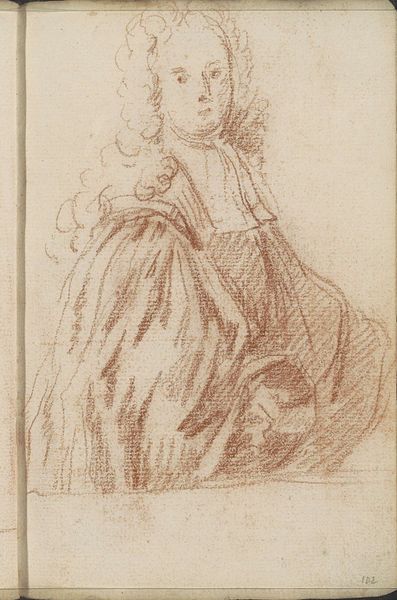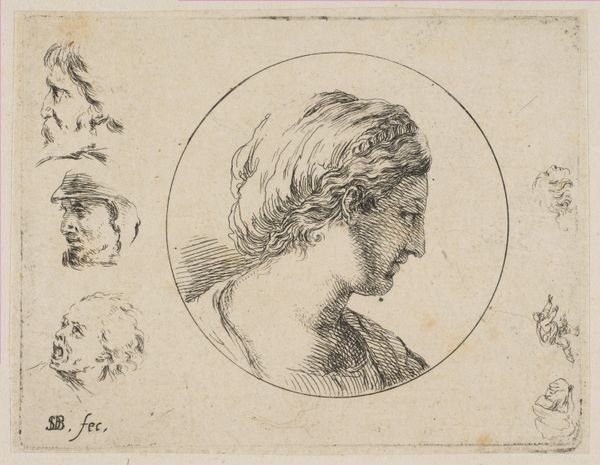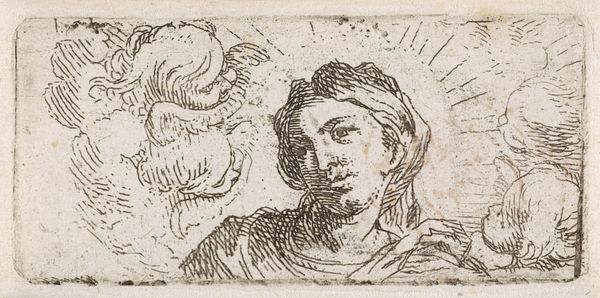
Twee hoofden van oude mannen naast elkaar, twee hoofden van jongemannen 1620 - 1657
0:00
0:00
stefanodellabella
Rijksmuseum
drawing, ink, pen
#
portrait
#
drawing
#
pen sketch
#
mannerism
#
ink
#
sketchbook drawing
#
pen
#
profile
Dimensions: height 22 mm, width 95 mm
Copyright: Rijks Museum: Open Domain
Editor: This pen and ink drawing by Stefano della Bella, "Two Heads of Old Men Beside Each Other, Two Heads of Young Men," created between 1620 and 1657, features groupings of portraits. The rough strokes give it an almost unfinished feeling. What stands out to you in this work? Curator: I see the intense labor of producing reproducible images. Pen and ink, as humble materials, here serve as a vehicle for circulating images to a broader public. Consider the social context: during this period, printmaking allowed for wider access to art, effectively democratizing image consumption beyond the elite. Editor: That’s interesting. I hadn’t thought about it in terms of accessibility. Does the contrast in ages contribute to that social aspect, then? Curator: Absolutely. Observe the meticulous lines defining age versus youth. The act of portraying different ages itself highlights a fascination with mortality and societal roles at the time. We might ask, what labor and material conditions created these differences and how were they valued then and now? Also note the means of production: the pen, the ink, the paper, the artisan's hand all point toward a developing commercial market for art prints. Editor: So, you’re saying that the drawing's materials and production values challenge this traditional idea of precious artworks? Curator: Precisely. Della Bella's work questions the boundaries between fine art and a more utilitarian craft, pointing toward an emerging consumer culture where art objects could be reproduced and distributed widely, changing who could have access to images and knowledge. Editor: It's fascinating to consider art not just for its aesthetic value, but also as a product of labor and a marker of a changing society. Thank you! Curator: My pleasure! Understanding the material conditions truly enriches our understanding of this period and the function of images.
Comments
No comments
Be the first to comment and join the conversation on the ultimate creative platform.
